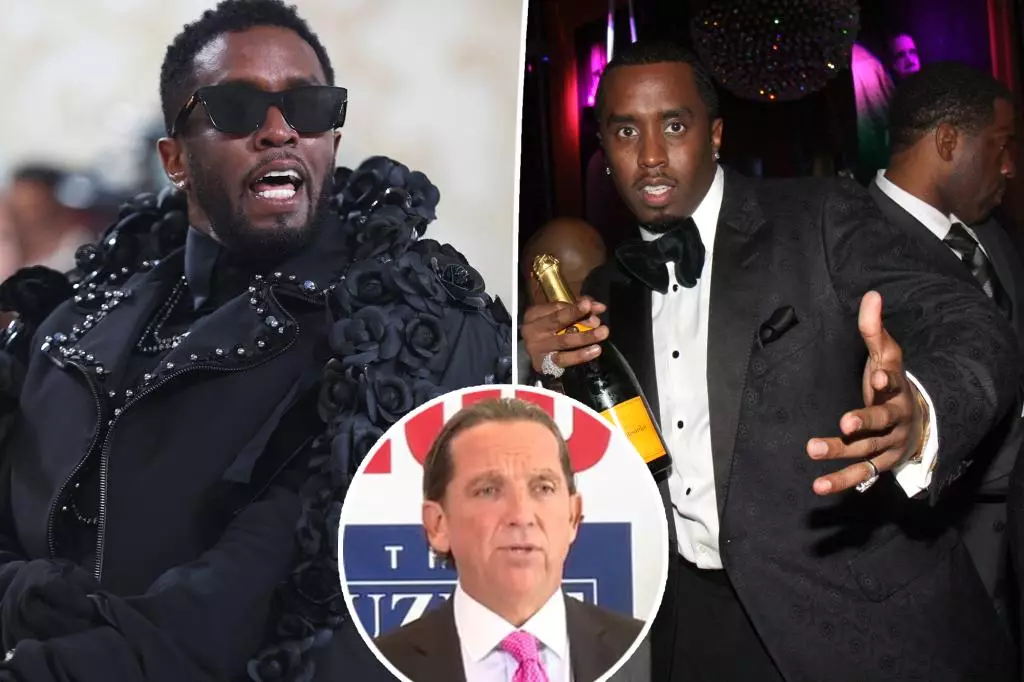Sean Combs, famously known as Diddy, has recently found himself at the center of a maelstrom of serious allegations, with over a hundred individuals coming forth to accuse him of sexual assault. These allegations paint a troubling picture of a figure once revered in the music industry as more than just a star; he was a brand. The layers of claims, including one particularly harrowing example from a woman who alleged that her drink was spiked while she was pregnant, not only raise questions about his character but also highlight broader societal issues regarding power dynamics and accountability in the entertainment world.
During a press conference led by attorney Tony Buzbee, the gravity of these allegations was made clear. The attorney recounted the accuser’s experience at a dinner in Miami, emphasizing that the woman, who was pregnant at the time, had not been drinking but was allegedly subjected to an inappropriate act that left her disoriented and vulnerable. The description of her condition upon waking—with physical injuries—paints a disturbing image that cannot be ignored.
Contextualizing the Allegations
Buzbee’s claims regarding the prevalence of similar experiences among other alleged victims suggest a pattern of behavior. As he pointed out, 25 individuals out of the over one hundred have come forward stating that they were minors during their alleged assaults, further complicating the legal landscape. This troubling trend raises critical questions about the normalization of such behavior within the entertainment industry and the efficacy of existing safeguards meant to protect the vulnerable.
Legal representatives for Combs have publicly denied these claims, asserting that he is innocent of all accusations, including those involving minors. They also stress the importance of a fair trial, where the evidence would determine the outcome rather than a media-driven narrative. However, the insistence on “categorically denying” the allegations contrasts sharply with the mounting testimonies, signaling a tug-of-war between public perception and legal proceedings.
The backdrop to these explosive claims includes Combs’ own legal battles, notably a lawsuit from his ex-girlfriend Cassie, who accused him of severe abuse over the course of their decade-long relationship. This suit set off a chain reaction, leading to federal investigations and raids on his properties. The timing of these accusations—after settling with Cassie—emphasizes how the aftermath of one scandal can often unearth deeper issues.
The federal charges against Combs span serious offenses, including sex trafficking and racketeering, highlight a critical moment of reckoning not just for him but for the music industry at large. Currently held without bail, the circumstances surrounding Combs’ situation reflect a shift towards greater accountability—a cultural change that many argue is long overdue.
The broader implications of these allegations extend beyond Diddy himself, echoing a societal shift where survivors of abuse feel empowered to speak out. With the legal team indicating that powerful figures could soon be named in conjunction with Combs, it suggests that this is merely the tip of the iceberg. Buzbee’s assertions of a “long list” of enablers hints at a deeper systemic issue, necessitating an extensive examination of how power structures in the entertainment industry often protect those in influential positions while endangering the vulnerable.
Furthermore, it is significant to note the societal zeitgeist that seems to be supporting these claims. With the rise of movements like #MeToo, there has been a cultural shift encouraging those with stories of assault and misconduct to come forward. The ramifications of these accusations could incite a broader reevaluation of norms and behaviors deemed acceptable within the industry, potentially leading to significant reforms in how allegations are handled and addressed.
As Combs faces these alarming claims, the situation serves as a stark reminder of the darker corners of the world of fame and influence. While the legal proceedings continue, one can only hope that this juncture sparks critical conversations about consent, power, and accountability—conversations that have been far too quiet for too long. The outcome remains uncertain, but the discussions it ignites could very well lead to a transformative moment within the music industry, one that prioritizes the voices of the previously silenced. There is no denying that the implications of these allegations extend beyond individuals—they reflect a broader cultural reckoning that is desperately needed.

Leave a Reply